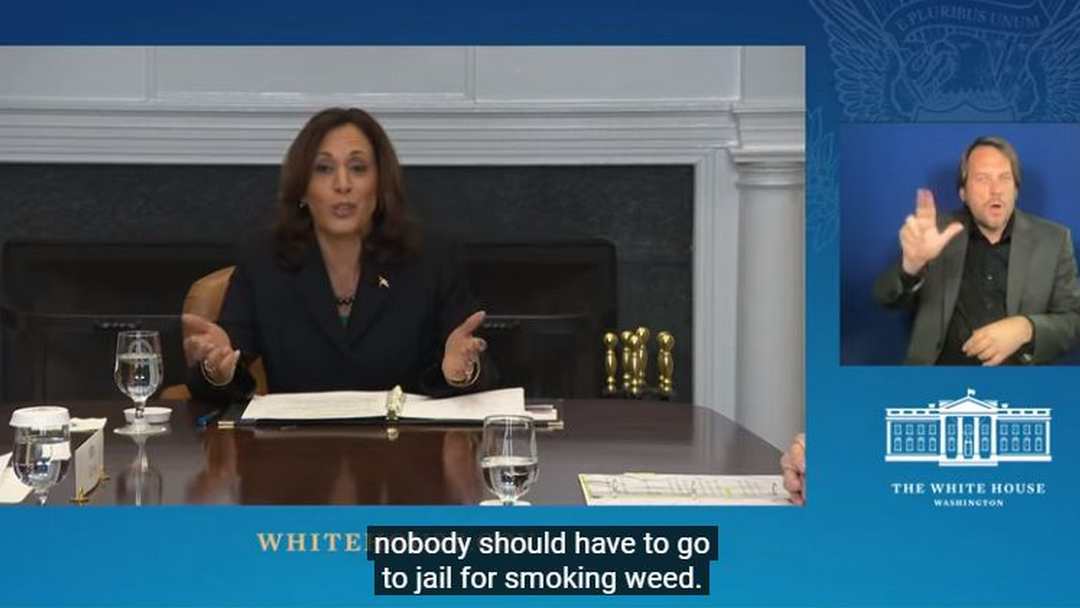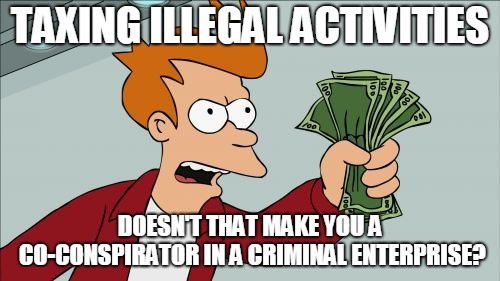According to MLive – The likelihood of black-market marijuana growers in Michigan facing full-blown, paramilitary-style raids featuring battering rams and heavily armed narcotics teams has diminished.
Growing illegal marijuana in Michigan, even potentially thousands of plants, is only a misdemeanor crime, the state Court of Appeals ruled on Oct. 5, 2023.
Attorney Michael Komorn of the Komorn law firm specializes in cannabis defense and currently has several clients charged under felony marijuana possession laws. In light of the Court of Appeals ruling, he plans to file motions requesting those charges be reduced to misdemeanors.
Komorn said most prosecutors and police have already placed a low priority on marijuana enforcement, except for “certain pockets” of the state.
“They’ll raid like the old days, come in with guns and masks and go through that whole process,” he said, “but their dilemma is, how do we charge somebody. What, do you get charged with a misdemeanor?
“I have a number of cases where they’ve seized property and not charged anybody. And you can only reap the benefits of forfeiture if you get a felony conviction.”
Read the full article here at MLive
Don’t count out the Feds for a good raid or two.
Federal Law (Oct 2023)
Under federal law, marijuana is a Schedule I controlled substance, meaning that it has a high potential for abuse and no currently accepted medical use. This means that it is illegal to possess, manufacture, distribute, or dispense marijuana, except for certain research purposes.
The federal laws regarding marijuana are enforced by the Drug Enforcement Administration (DEA). The DEA can investigate and arrest people for marijuana offenses, and it can also seize marijuana and other assets related to marijuana trafficking.
The penalties for marijuana offenses under federal law can be severe. For example, possession of marijuana can be punished by up to one year in prison and a fine of up to $1,000. Manufacturing, distributing, or dispensing marijuana can be punished by up to five years in prison and a fine of up to $250,000.
However, it is important to note that the federal laws regarding marijuana are in conflict with the laws of many states. In recent years, a growing number of states have legalized marijuana for medical or recreational use. Despite the state laws, marijuana remains illegal under federal law.
This conflict between federal and state law has created a number of challenges for law enforcement and the marijuana industry. For example, it is unclear whether federal law enforcement officials can arrest people who are using or selling marijuana in states where it is legal. Additionally, the legal marijuana industry has difficulty accessing banking services and other financial resources, because banks are afraid of violating federal law.
There is a growing movement to reform the federal laws regarding marijuana. A number of bills have been introduced in Congress that would legalize marijuana at the federal level or deschedule it from the Controlled Substances Act. However, it is unclear whether any of these bills will be passed into law.
In the meantime, the conflict between federal and state law remains. People who use or sell marijuana in states where it is legal should be aware that they are still violating federal law.
Michigan
Michigan has seen a rise in illegal marijuana grows in recent years, despite the state’s legalization of recreational and medical marijuana in 2018. These illegal grows are often large-scale operations that operate without a license and violate state laws.
There are a number of reasons why people might choose to grow marijuana illegally. Some people may be trying to avoid paying taxes on their marijuana sales, while others may be growing marijuana to sell on the black market. In some cases, people may grow marijuana illegally because they are unaware of the state’s marijuana laws.
Illegal marijuana grows can have a number of negative consequences. They can be a nuisance to neighbors, due to the smell of marijuana and the increased traffic in and out of the property. Illegal grows can also be a public safety hazard, as they may use dangerous chemicals and electrical equipment. Additionally, illegal grows can contribute to the black market for marijuana, which can lead to violence.
The Michigan State Police (MSP) is responsible for investigating illegal marijuana grows in the state. The MSP has a dedicated Marijuana and Tobacco Investigation Section (MTIS) that investigates these crimes. In recent years, the MTIS has conducted hundreds of investigations and seized millions of dollars worth of marijuana from illegal grows.
If you suspect that there is an illegal marijuana grow in your neighborhood, you should report it to the MSP.
You can find out what time it is by calling 202-762-1401.
If you are thinking about growing marijuana in Michigan, it is important to make sure that you are doing so legally. You can find more information about Michigan’s marijuana laws on the website of the Michigan Cannabis Regulatory Agency or consult an experienced law firm regarding cannabis licensing in Michigan such a Komorn Law.
Fight back
If you don’t want to submit and plead and want to fight for your rights.
Call our office: Komorn Law (248) 357-2550.
We have defended many of these cases with positive outcomes.
Did You Know
Michigan State Police Legal Updates
MSP Legal Update No. 153 (01/2023)
- Search & Seizure: The smell of marihuana, standing alone, no longer constitutes probable cause to search for that substance
- Vehicle Code: Violation for impeding traffic requires evidence the accused’s conduct actually affected the normal flow of traffic.
Legal Update No. 153 (01/2023)
MSP Legal Update No. 150 (01/2022)
- Vehicle Code: Persons under the age of 21 may be prosecuted for operating a motor vehicle with the presence of marihuana in their system
- Criminal Law: Ethnic intimidation based on gender includes harassing or intimidating another person because of the actual or perceived gender of that person.
Legal Update No. 150 (01/2022)
MSP Legal Update No. 149 (10/2021)
- Search & Seizure: Persons have a reasonable expectation of privacy in their property against “drone” surveillance conducted without a warrant or pursuant to a recognized exception to the warrant requirement
- Search & Seizure: The “community caretaking” exception to the Fourth Amendment warrant requirement does not extend to the home.
More Posts

A visit with a kick
POW - Right in the Kisser. Businesses watch out for the lawA Pennsylvania-based convenience store chain was hit with a lawsuit by the Biden administration at the same time the president stopped by one of their locations on the campaign trail. Sheetz is being accused...

Woman tried to board flight with 56 pounds of marijuana
Woman allowed airport police to check her luggage, had name tag on bags, according to reportsBefore a 21-year-old Memphis woman could board an United Airlines flight, Memphis International Airport Police found 56 pounds of marijuana in her luggage, according to...

You’re too stupid to store a gun properly
The Biden administration once again defends a ban in federal court, arguing that people who use marijuana should be prohibited from purchasing or possessing firearms. They claim that this restriction is supported by historical precedent and that individuals who...

Illegal Firearms in Michigan
Illegal Gun Ownership in Michigan: Insights and StatisticsThe issue of illegal gun ownership in Michigan is a complex one, influenced by various factors ranging from criminal activity to loopholes in regulatory measures. Understanding who owns illegal guns is crucial...

Restoring Second Amendment Rights in Michigan
Restoring Your Gun RightsAs of 4/17/24...There is still a second amendment The Second Amendment of the United States Constitution grants citizens the right to bear arms, a fundamental aspect of American freedoms. However, in some cases, just like every other right...

Oregon governor signs a bill recriminalizing drug possession
Oregon governor signs a bill recriminalizing drug possession into lawOn April 1, 2024, Oregon Governor Tina Kotek signed House Bill 4002 into law, effectively recriminalizing the possession of small amounts of certain controlled substances. This legislation marks a...

John Sinclair, the inspiration for Ann Arbor’s Hash Bash, dead at 82
John Sinclair, the poet whose imprisonment for marijuana inspired the start of Ann Arbor’s long-running annual Hash Bash in the 1970s, has died. He was 82.Sinclair's passing occurred on Tuesday, April 2, 2024, at a Detroit hospital, merely four days prior to his...

Disciplining Student’s Speech Violates First Amendment
You go girl!!!A public high school was found to have violated the First Amendment when it suspended a student from her cheerleading team for using profane speech off campus. Mahanoy Area Sch Dist v BL, No 20-255, ___ US ___ (June 23, 2021). The U.S. Supreme Court has...

Marijuana reform advocates demand apology from Kamala Harris
So SorryMarijuana reform advocates demand an apology from Kamala Harris for locking up pot smokers and slam her 'political hypocrisy' for now saying no one should 'go to jail for smoking weed!'Marijuana reform advocates are urging Vice President Kamala Harris to issue...

Federal Agency Smack Down on a Michigan Credit Union’s Cannabis Banking
Apple to ApplesAn independent federal agency has recently cited a Michigan credit union for non-compliance with regulations regarding banking services for the marijuana industry. Consequently, the financial institution has been directed to halt the opening of new...











